MercoPress. South Atlantic News Agency
Tag: Anfavea
-
Monday, July 8th 2019 - 20:21 UTC
Brazilian auto exports expected to plunge because of Argentina's recession
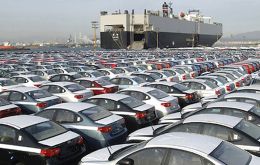
Brazilian vehicle exports to Argentina are expected to plunge this year, and the industry could face threats from rising imports following a free trade agreement between the European Union and Mercosur, a major industry body said.
-
Thursday, November 8th 2018 - 08:15 UTC
“Strong market” for Brazilian automakers, but much will depend on Argentina

Automakers in Brazil last month notched their strongest sales in nearly four years, adding to optimism as the auto industry kicked off the biannual Sao Paulo International Motor Show.
-
Thursday, August 9th 2018 - 20:33 UTC
Brazil's auto exports tumble 21% in July over June: fingers point to Argentina weakness
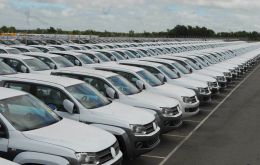
Brazil's auto exports tumbled 21% in July from a month ago, the country's automakers' association said on Tuesday, blaming a monetary crisis in neighboring Argentina for the shortfall and adding that it expects exports to be steady for the year, not higher as it had predicted before last month.
-
Tuesday, March 10th 2015 - 06:56 UTC
Renewal of car quotas with Mexico reveals shortcomings of Brazilian industry
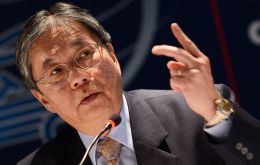
Brazil and Mexico announced the renewal of vehicle quotas for four years, delaying the implementation of a free-trade agreement between the two countries. Under the new agreement, Brazil and Mexico will permit $1.56 billion of duty-free vehicle imports for the first year of the agreement. That amount will rise 3% each year until the agreement expires, in 2019, when they’ll return to a free-trade regime.
-
Thursday, August 7th 2014 - 07:26 UTC
Brazil's July auto output and sales plummet 20.5% and 13.9% compared to 2013

Auto production in Brazil during July dropped 20.5% from a year earlier, national automakers' association Anfavea said on Wednesday, while sales slid 13.9%. Compared to June, production rose 17% and sales 11.8%, as July had an additional two working days.
-
Saturday, July 26th 2014 - 06:18 UTC
Brazilian auto industry putting workers on paid leave as production plummets 10%
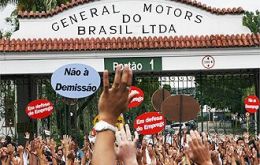
General Motors Co wants to put nearly a fifth of its workers at a factory in Brazil on paid leave, an auto workers union said this week, amid falling output in Latin America's largest economy.
-
Monday, July 14th 2014 - 23:03 UTC
Mexico rapidly overtaking Brazil as Latam's leading auto producer
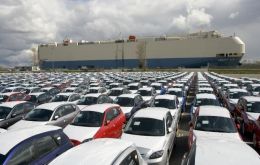
Pacific Alliance member Mexico is poised to overtake Brazil, the leading economy in Mercosur, as the top Latin American auto producer for the first time in more than a decade as surging exports to the U.S. spur factory openings and record output.
-
Saturday, May 10th 2014 - 08:03 UTC
Brazil's auto production rose in March but is down 21,4% compared to 2013
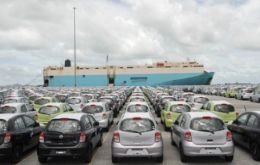
Brazilian vehicle production rose 1.6% last month compared with March, but was down 21.4% from the level of April 2013, the Anfavea auto industry association said Friday. Last month saw 277,100 cars, trucks, SUVs and buses roll off assembly lines in Brazil, significantly short of the 352,400 vehicles produced by Latin America's largest economy in April 2013.
-
Tuesday, April 29th 2014 - 06:31 UTC
Argentina and Brazil plan to prop economies by stimulating the auto industry

Argentine Economy Minister Axel Kicillof and Industry Minister Débora Giorgi fly to Brasilia on Tuesday in a bid to swing the automobile trade balance in Argentina’s favor, with the sector accounting for the majority of a total 3.15 billion dollars trade deficit. From Brazil Finance minister Guido Mantega confirmed bilateral discussions on the auto industry and exports.
-
Friday, April 25th 2014 - 05:45 UTC
Lay-offs hit Brazilian auto industry following advancing drop in sales

Volkswagen said on Thursday it will lay off 900 autoworkers at two Brazilian plants, one of the biggest recent efforts to cut output in the face of sluggish demand for cars in Latin America's largest economy. Brazil is the No. 4 market for Volkswagen after China, Germany and the United States.
